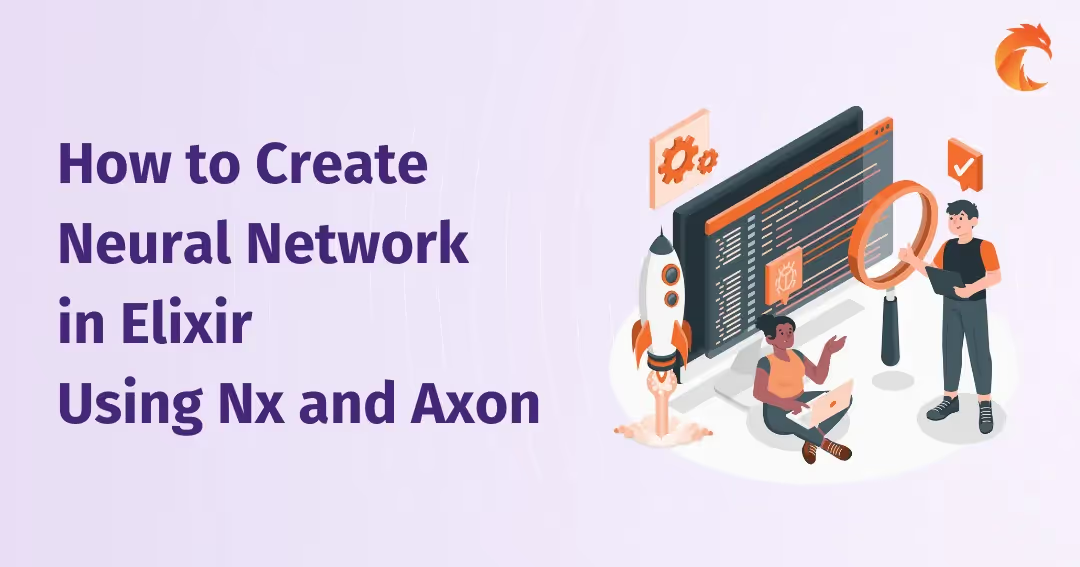Choosing the Right Tool in Elixir: Insights from Pedro Paulino - Elixir Meetup #9


Pedro shares his journey of choosing Elixir for his side project and discusses his experiences with this powerful language. Learn why Elixir was the right choice for him and how it can benefit your projects too.
About Pedro Paulino
Pedro Paulino is a Brazilian software developer with extensive experience in IT since 2009. Currently based in Maringá, Paraná, Brazil, Pedro works primarily as a UX designer while also pursuing various side projects. One of his notable projects is Gearcloud.
Discovering Elixir
Initial Encounter
Pedro first heard about Elixir between 2015 and 2016. He was intrigued to learn that it was developed by a Brazilian, José Valim, and decided to explore this functional language based on the Erlang VM.
Key Points:
- Developer Background: Developed by José Valim, also the CEO of Plataformatec.
- Global Usage: Adopted by companies in Germany and Brazil, such as Pipefi.
Setting Up the Development Environment
Docker Environment
To start experimenting with Elixir, Pedro created a Docker environment. This setup allowed him to play with the language and understand its capabilities.
Key Steps:
- Docker Setup: Created a Docker environment for Elixir experimentation.
- Initial Projects: Played with various frameworks like Phoenix and Chicago Boss.
Advantages of Elixir
Syntax and Similarity to Ruby
Pedro highlights the similarity of Elixir's syntax to Ruby, making it an attractive option for Ruby developers. This familiarity eases the transition and enhances productivity.
Key Benefits:
- Ease of Transition: Ruby developers can quickly adapt to Elixir.
- Performance: Elixir handles multiple CPUs efficiently, enhancing performance.
Experience with Phoenix Framework
Pedro's experience with Phoenix, particularly Phoenix LiveView, was transformative. He found it to be an excellent combination for his project needs, streamlining the development process.
Key Features:
- Real-Time Updates: Phoenix LiveView enables real-time updates with minimal JavaScript.
- Efficiency: Simplifies the development process for solo developers.
Practical Applications
Side Project: Gearcloud
Pedro discusses his side project, Gearcloud, a food service app. He explains how Elixir and Phoenix helped streamline his UX process, from Figma designs to production.
Project Workflow:
- Design in Figma: Start the UX process in Figma.
- Integration with Zeppelin: Use Zeppelin for HTML and CSS generation.
- Phoenix LiveView: Integrate with Phoenix LiveView for seamless development.
Performance and Scalability
Running on Docker
Pedro demonstrates the performance of Elixir and Phoenix running on an old laptop with Docker. He highlights the efficiency and ease of use, even on less powerful hardware.
Key Points:
- Fast Boot-Up: Elixir and Phoenix boot up quickly in Docker.
- Resource Efficiency: Runs efficiently on older hardware.
Future Plans and Conclusion
Upcoming Updates
Pedro shares his plans to release more updates about his project by early 2023. He invites the audience to connect with him on LinkedIn for further discussions.
Future Goals:
- Project Release: Aim to release updates between January and March 2023.
- Community Engagement: Encourage discussions about Elixir and related technologies.
Ready to deploy your Elixir applications with Kubernetes? Register for the next Elixir Meetup at Curiosum Meetups: Registration Join our community of Elixir enthusiasts at Elixir LinkedIn Group Prefer watching the presentation? Here’s the video
Want to power your product with Elixir? We’ve got you covered.
Related posts
Dive deeper into this topic with these related posts
You might also like
Discover more content from this category
Whether you've only just heard of the Elixir programming language and would like to learn it, or if you're a seasoned developer with years of experience, you need adequate learning resources to ensure steady progress in your career.
Introduction
Drawing from Joshua extensive experience in Elixir and Phoenix LiveView, Joshua offers valuable insights and practical techniques to help developers improve their coding efficiency and maintain high standards.
Neural networks mirror the behaviour of the human brain, enabling computer programmes to recognise patterns and solve common problems in the fields of artificial intelligence, machine learning and deep learning.



